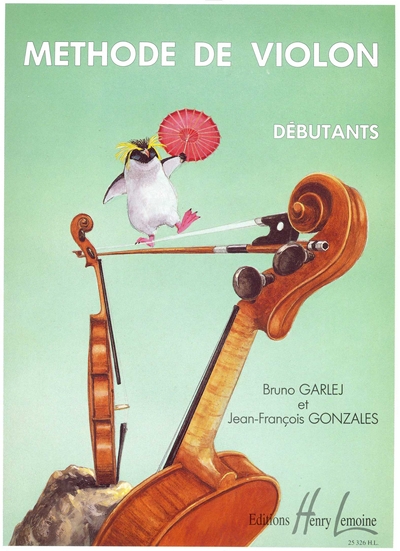Giovanni Paisiello (1740 – 1816) was an Italian
composer of the Classical era, and was the most popular
opera composer of the late 1700s. His music was praised
by Haydn and Beethoven and an operatic influence on
Mozart and Rossini.
Paisiello was born in Taranto in the Apulia region and
educated by the Jesuits there. He became known for his
beautiful singing voice and in 1754 was sent to the
Conservatorio di S. Onofrio at Naples, where he studied
under Francesco Durante, and eventually...(+)
Giovanni Paisiello (1740 – 1816) was an Italian
composer of the Classical era, and was the most popular
opera composer of the late 1700s. His music was praised
by Haydn and Beethoven and an operatic influence on
Mozart and Rossini.
Paisiello was born in Taranto in the Apulia region and
educated by the Jesuits there. He became known for his
beautiful singing voice and in 1754 was sent to the
Conservatorio di S. Onofrio at Naples, where he studied
under Francesco Durante, and eventually became
assistant master. For the theatre of the Conservatorio,
which he left in 1763, he wrote some intermezzi, one of
which attracted so much notice that he was invited to
write two operas, La Pupilla and Il Mondo al Rovescio,
for Bologna, and a third, Il Marchese di Tidipano, for
Rome.
His reputation now firmly established, he settled for
some years at Naples, where, despite the popularity of
Niccolò Piccinni, Domenico Cimarosa and Pietro
Guglielmi, of whose triumphs he was bitterly jealous,
he produced a series of highly successful operas, one
of which, L'ldolo cinese, made a deep impression upon
the Neapolitan public. The young Mozart met him in
Bologna in 1771. Paisiello introduced Mozart to Italian
opera which would become the epitome of Mozart's
music.
In 1772 Paisiello began to write church music, and
composed a requiem for Gennara di Borbone, of the
reigning dynasty. In the same year he married Cecilia
Pallini, and the marriage was a happy one. In 1776
Paisiello was invited by the empress Catherine II of
Russia to St. Petersburg, where he remained for eight
years, producing, among other charming works, his
masterpiece, Il barbiere di Siviglia, which soon
attained a European reputation. The fate of this opera
marks an epoch in the history of Italian art; for with
it the gentle suavity cultivated by the masters of the
18th century died out to make room for the dazzling
brilliance of a later period.
Paisiello left Russia in 1784, and, after producing Il
Re Teodoro at Vienna, entered the service of Ferdinand
IV of Naples, where he composed many of his best
operas, including Nina and La Molinara. The English
tenor Michael Kelly witnessed another meeting between
Paisiello and Mozart. Mozart kissed his hand as a sign
of admiration. After many vicissitudes, resulting from
political and dynastic changes, he was invited to Paris
(1802) by Napoleon, whose favor he had won five years
previously by composing a march for the funeral of
General Hoche. Napoleon treated him munificently, while
cruelly neglecting two more famous composers, Luigi
Cherubini and Etienne Méhul, to whom the new favorite
transferred the hatred he had formerly borne to
Cimarosa, Guglielmi and Piccinni.
Paisiello conducted the music of the court in the
Tuileries with a stipend of 10,000 francs and 4,800 for
lodging, but he entirely failed to conciliate the
Parisian public, who received his opera Proserpine so
coldly that, in 1803, he requested and with some
difficulty obtained permission to return to Italy, upon
the plea of his wife's ill health. On his arrival at
Naples Paisiello was reinstated in his former
appointments by Joseph Bonaparte and Joachim Murat, but
he had taxed his genius beyond its strength, and was
unable to meet the demands now made upon it for new
ideas. His prospects, too, were precarious. The power
of the Bonaparte family was tottering to its fall; and
Paisiello's fortunes fell with it. The death of his
wife in 1815 tried him severely. His health failed
rapidly, and constitutional jealousy of the popularity
of others was a source of worry and vexation.
Paisiello is known to have composed 94 operas, which
are known for their gracefully beautiful melodies.
Perhaps the best-known tune he ever wrote is "Nel cor
più non mi sento" from La Molinara, immortalized when
Beethoven composed variations based on it. Another
favourite vocal piece is "Chi vuol la zingarella" from
I zingari in fiesta, that vividly portrays the scene of
an attractive gypsy girl with its dramatic music.
Paisiello also wrote a great deal of church music,
including eight masses; as well as fifty-one
instrumental compositions and many stand-alone songs.
He also composed the Inno al Re, the national anthem of
the Kingdom of the Two Sicilies. Manuscript scores of
many of his operas were presented to the library of the
British Museum by Domenico Dragonetti.
Source: Wikipedia
(https://en.wikipedia.org/wiki/Giovanni_Paisiello).
Although originally composed for Violin & Piano, I
created this Interpretation of the Capriccio in D Major
for String Quartet (2 Violins, Viola & Cello).





